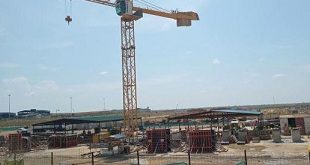
It plans to integrate climate change related risks in analysing micro and macro-economic conditions
Kampala, Uganda | ISAAC KHISA | Uganda’s central bank will soon rollout guidelines for green financing to support small and medium and enterprises as the country strives to achieve sustainable development.
Hannington Wasswa, the director commercial banking at BoU revealed during the Uganda Green Enterprise Finance Accelerator (UGEFA)’s second annual Green Finance Dialogue Forum held in Kampala on Dec.09 that commercial banks have been unable to extend credit facilities to green SMEs, yet the latter could play a crucial role in averting the climate change and related negative effects to the economy.
“One of the issues that came out very clearly in our recent survey was that banks did not know what to do in relation to green finance applications and were waiting for (our) guidance,” he said.
“Right now, the central bank is coming up with a policy on green finance and then come up with regulations that we shall use to guide the financial sector on how to implement green financing.”
Wasswa said, the BoU plans to integrate climate clanged related risks in ascertaining the country’s micro and macro-economic conditions.
This development comes as various stakeholders including the European Union revealed that the millions of euros extended to the country’s financial sector for onward lending to SMEs has not been disbursed to the intended beneficiaries as a result of numerous reasons ranging from lack of collateral to high interest rates and lack of business plans.
Similarly, commercial banks, too, have been unable to assess the risks in the green SMEs to enable them extend credit.
Cornelia Penzel, Uganda Director, KwF Development Bank, revealed the German Government extended EUR 6 million to the local green SMEs in 2018 through the East African Development Bank in a project known as Biodiversity Financing Facility but has never been disbursed to the firms because of inadequate supporting documents.
However, she said they now plan to channel the funds to the SMEs through commercial banks for onward lending at favorable terms and will be used as a revolving fund. The target sectors are; eco-tourism, fisheries/aquaculture, organic agriculture, forestry, protected areas, and other wildlife-based enterprises, with other biodiversity-related fields possible such as renewable energy.
Penzel said, negative effects of climate change are on the rise, a trend that need to be reversed through smart business initiatives. Uganda has in the past years faced multiple weather-related and geological disasters in form of landslides in Mt Elgon and Rwenzori areas, flush floods especially in Kasese, Kampala and other areas, lightening and droughts in most parts of the country.
Most of these have caused many deaths and displaced hundreds of inhabitants as per the study done by the National Commission in 2013/14 biennium.
During the financial year 2019/2020 alone, disasters were reported in over 70 districts affecting about 800,000 people and displacing more than 21,000 families. This resulted in over Shs560bn in economic losses, underlining the importance of investing in preparedness.
Other factors such as the desert locust crisis, and the increased impact of epidemics have also negatively impacted individuals, community, country and global levels.
Elsewhere in the region, floods were reported in more than three quarters of Kenya’s counties (36 out of 47) in May 2020, with landslides reported in the Rift Valley and the central and coastal regions causing deaths and displacement of more than 400,000 people.
Rwanda, too, has not been spared either as the official death toll of landslides, lightning, floods and other events was 254 in 2018, a sharp increase from 82 the previous year. In addition, cases of drought in the Greater Horn of Africa and the 5.9 magnitude earthquake that hit North West Tanzania are among some of the recent disasters whose impacts are still being felt in the region.
Easing access to credit
Christine Meyer, Senior Manager Adelphi, the implementer of Uganda Green Enterprise Finance Accelerator, said the EU is now providing technical support to SMEs that are innovating products, services and processes that place environmental sustainability and social inclusion at their core –waste management, sustainable transport and mobility, agro-processing, clean energy and others.
Meyer said, the 4-year programme worth EUR 6 million unveiled in 2020 has seen more than 120 enterprises enroll and others graduate. She said, more than 80 slots remain for the green SMEs to be onboarded.
“So, we extend trainings to these SMEs on management, investment readiness and business planning, finance reporting, financial planning, investment planning and loan applications and negotiations and credit proposals that they can take to the bank to request for credit,” she said.
“In the event that proposals are accepted and the loan is approved, we repay a third of the loan to the financial institution and the SMEs clear the balance,” she added noting that the UGEFA is currently working with Equity, Yako and Opportunity banks to extend credit to their partner green SMEs.
****
 The Independent Uganda: You get the Truth we Pay the Price
The Independent Uganda: You get the Truth we Pay the Price



